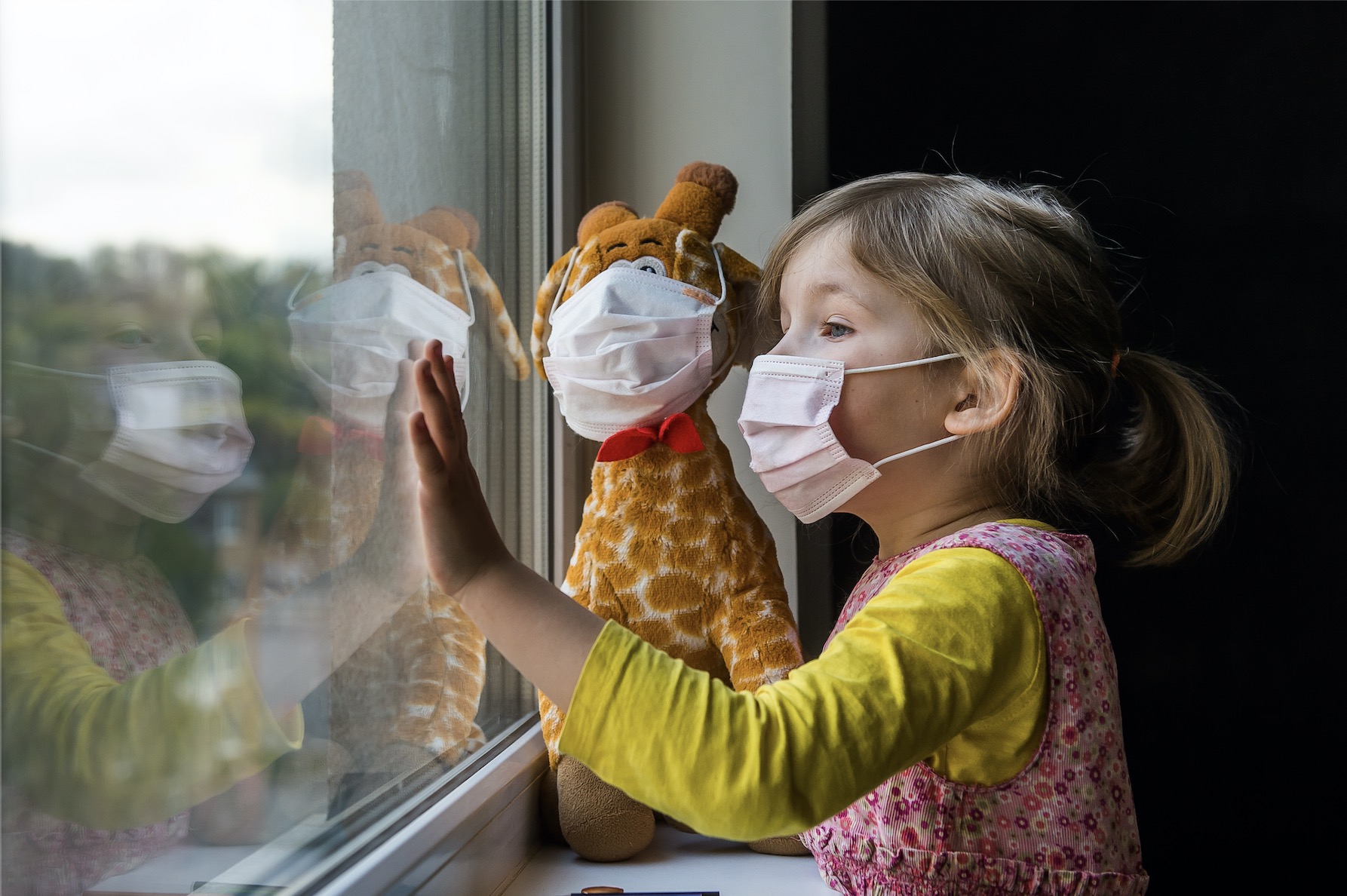By Madison L. Gwizdalski, MS-CCC, SLP
Parents and providers know that the early experiences a child has can greatly shape their development. “Typical development” is fostered by a combination of nature and nurture, both the child’s genetic environment and their social environment. So, what happens when a child’s primary social experience is one that may include social distancing, limited interactions outside of the household, masking, and prolonged stress?
A new study (linked here: https://www.medrxiv.org/content/10.1101/2021.08.10.21261846v1.full; preprinted, and not yet peer-reviewed) is making news for its discussion of the COVID-19 pandemic’s effect on early childhood cognitive development. The study, from Rhode Island Hospital and Brown University, as a part of a longitudinal project to track child neurodevelopment beginning in 2011. Authors compared scores from the Mullen Scales of Early Learning (which measures 5 different developmental domains) from babies preceding decade (2011 – 2019) to those born in 2020 and 2021. Compared to babies from 2011-2019, babies born in 2020-21 present with significantly lower scores in motor, cognitive, and verbal skills. Especially impacted are boys in families with lower socioeconomic resources.
Parents have had (and this is an understatement) many difficult decisions to make during this pandemic. The most important thing is our child’s health and well-being, and that will always come first when influencing our decisions on what we choose to do, and how we choose to do it. But what specifically might be leading to these major changes in scores?
As mentioned previously, environmental factors such as maternal mental and physical health, nutrition, stimulation, and supportive relationships can impact developmental beginning in gestation. Some trends that we have seen in families this year include reduced social interaction, increased media consumption, and reduced physical activities, all of which may have an impact on motor development and coordination, socioemotional development, and language development.
The role of masking and its impact of socioemotional processing and language development has not yet been investigated. However, the study proposed that masking may impact an infant or toddler’s ability to see and interpret facial expressions, non-verbal cues, and hear verbal language appropriately.
So…. what can we do as parents and providers? Masking up and protecting our children is non-negotiable. How do we encourage the development of our children safely? Here are some suggestions on ways to provide a supportive environment for our littles:
- Make informed decisions – stay up to date with current health recommendations from trusted sources like your local and state government
- Avoid scary talk around your toddlers – our babies can sense our emotions. When they can see and hear your worry, they get worried too. Try and keep these conversations private, and if they ask questions, provide a developmentally appropriate answer.
- Encourage socialization at home- carve out some quality time to spend daily playing with your child. Let your child know that you are their safe space!
- Play with your child! Play is how children learn. Children benefit from access to a variety of activities that foster language development and learning. Here are a couple examples:
- literacy: books and reading materials
- cognitive development and problem solving: cause and effect toys, blocks, puzzles, ball drops
- creative play: finger paints, coloring, stickers, messy/sensory play
- social skills: peek-a-boo!, bubbles, Ring around the Rosie… giving a caregiver a turn with any toy!
- pretend play: kitchen toys, play toolboxes, stuffed animals, baby dolls
- motor development: balls, walks, bubbles, copying exercises such as jumping jacks, karate chops, and marching
- Reduce screen time! The CDC recommends children 18 months or younger have 0 minutes of screen time per day , and children 2 and older have no more than 1 hour per day. Research has linked excessive screen time to language delays and behavior challenges.
If you are concerned about your child’s development, please reach out to a qualified provider. Early intervention services, such as speech therapy and occupational therapy, can considerably mitigate the effects of developmental delays.




